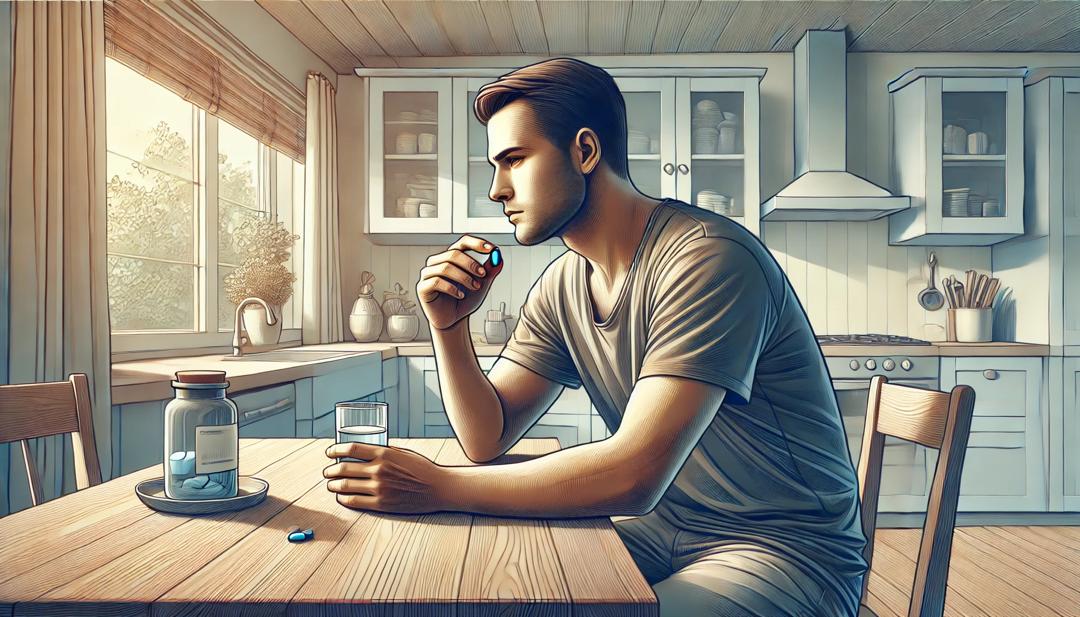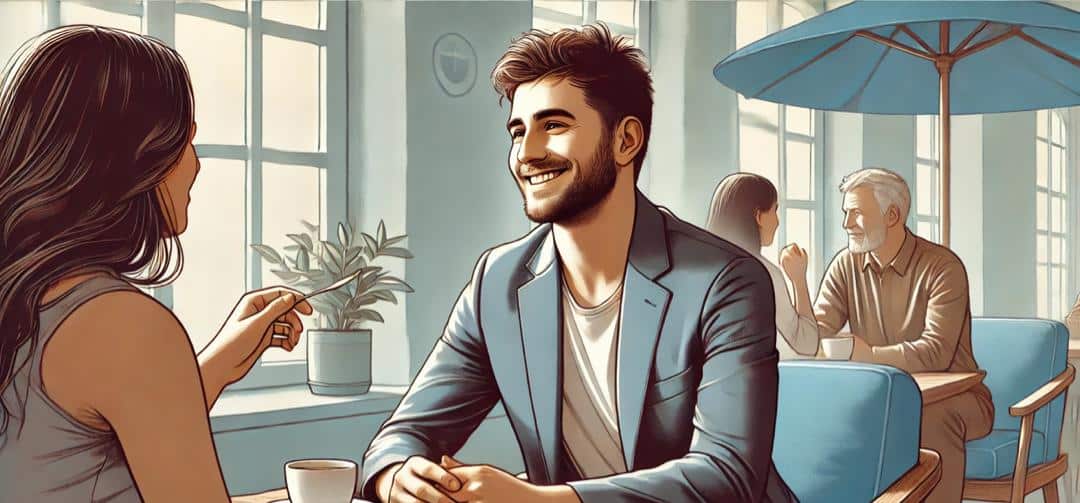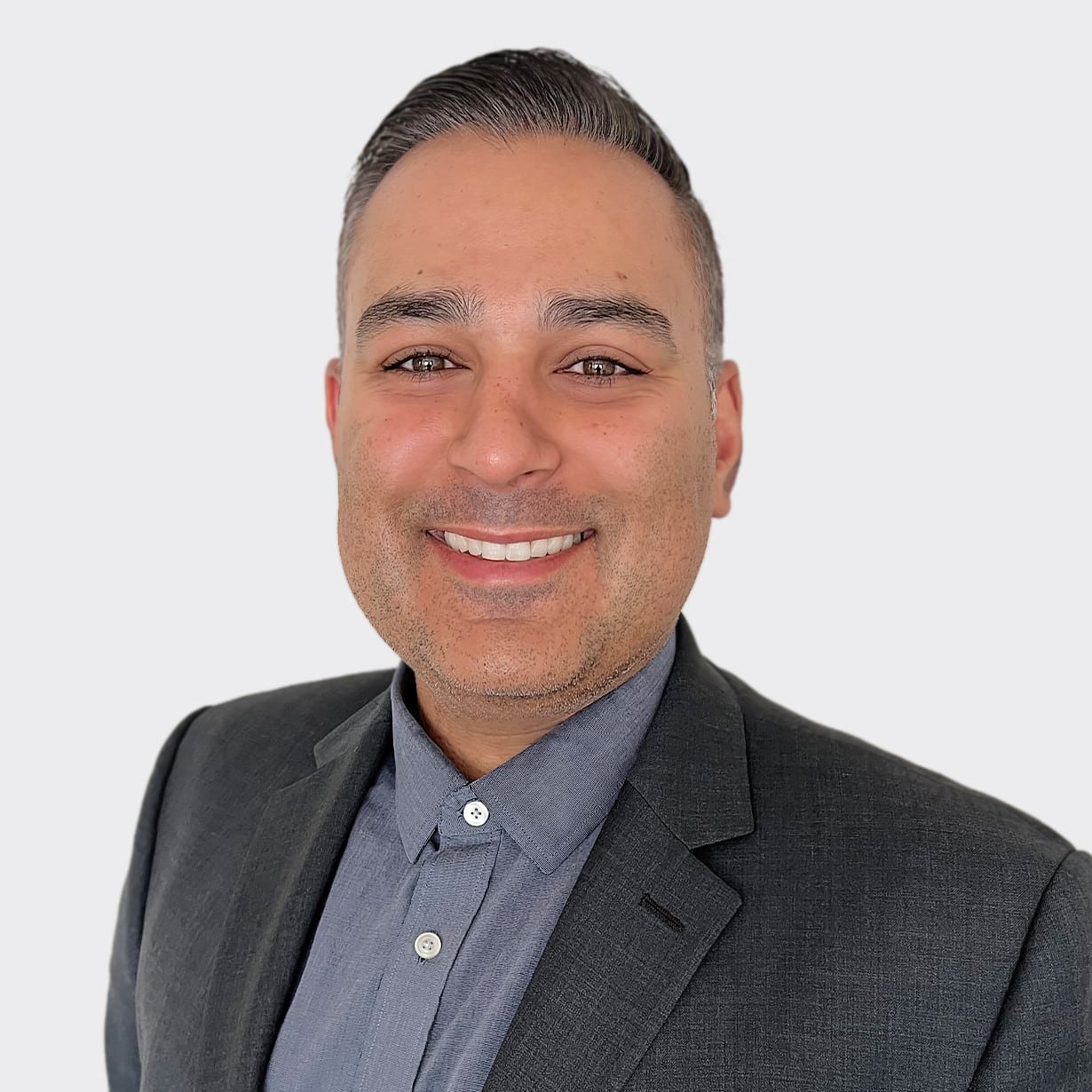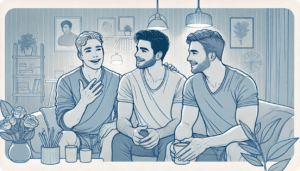Key Takeaways
- Fluvoxamine is a medication classified as a selective serotonin reuptake inhibitor (SSRI). SSRIs function by increasing serotonin levels in the brain.
- The primary indication for this treatment is social anxiety disorder, with the objective being the mitigation of symptoms such as intense fear and aversion to social situations.
- The recommended initial dosage of fluvoxamine for adults diagnosed with social anxiety disorder is 50 milligrams per day.
- Most patients may start to feel better about their anxiety symptoms within 4 to 6 weeks of starting fluvoxamine.
- A Mission for Michael (AMFM) provides a comprehensive range of mental health services, including residential treatment, partial hospitalization, intensive outpatient programs, and outpatient services.
Overview of Social Anxiety Disorder
Social anxiety disorder, or social phobia, is a severe mental health condition characterized by an intense fear of being judged or negatively evaluated in social situations. This persistent fear can cripple a person’s ability to perform everyday activities such as meeting new people, speaking in public, and attending social gatherings. Common triggers include public speaking, interacting with unfamiliar people, or performing actions in front of others, which may provoke a strong fear response, impairing daily functioning significantly.
When untreated, social anxiety disorder profoundly affects personal relationships, professional growth, and overall quality of life. Therefore, understanding and implementing effective treatments like fluvoxamine are crucial for alleviating symptoms and enhancing well-being. These treatments help manage the anxiety and fear associated with social interactions, facilitating better social functioning and life quality improvements. 1
| A Mission For Michael: Expert Mental Health Care Founded in 2010, A Mission For Michael (AMFM) offers specialized mental health care across Southern California, Washington, and Virginia. Our accredited facilities provide residential and outpatient programs, utilizing evidence-based therapies such as CBT, DBT, and EMDR. Our dedicated team of licensed professionals ensures every client receives the best care possible, supported by accreditations from The Joint Commission and the California Department of Health Care Services. We are committed to safety and personalized treatment plans. Start your recovery journey with AMFM today! |
Causes of Social Anxiety Disorder
Scientists don’t have a single, clear answer for what causes social anxiety disorder. However, research suggests that a combination of factors can contribute to its development.
Genetics appear to play a significant role, as social anxiety disorder often runs in families. If a close family member has the disorder, there may be an increased risk of developing it as well – though it’s not guaranteed.
Environmental factors are another contributor. Childhood experiences such as bullying, ridicule, or other negative interactions can lead to the development of social anxiety symptoms. Learned behaviors and early social conditioning also play a part. 2
Neurological differences may also contribute; research has found that individuals with social anxiety disorder often have an overactive amygdala – the part of the brain that controls fear responses. This heightened activity can lead to increased feelings of anxiety in social situations.
Symptoms of Social Anxiety Disorder

Social anxiety disorder manifests in various ways, impacting emotions, behavior, and physical well-being. These symptoms can interfere with daily life and make social interactions incredibly challenging.
Common symptoms of social anxiety disorder include:
- Emotional symptoms: Fear or anxiety in social situations, excessive self-consciousness, and worry about embarrassing oneself.
- Behavioral symptoms: Avoiding social interactions or dealing with them in a very stressful way can lead to feeling alone.
- Physical symptoms: Some people experience physical reactions, like blushing, sweating, trembling, or a racing heart, in social situations. 3
Types of Social Anxiety Disorder
Social anxiety disorder is typically categorized based on the specific situations that trigger anxiety and the severity of symptoms:
- Performance-Only Social Anxiety Disorder: This type is characterized by anxiety that arises exclusively in performance-related situations. Common examples include public speaking, acting, or giving presentations. Individuals with this type generally function well in other social settings but may experience intense fear or avoidance of performance scenarios.
- Generalized Social Anxiety Disorder: Generalized social anxiety disorder involves a broader fear of most or all social situations. Individuals with this type may experience significant anxiety in everyday interactions such as meeting new people, eating in public, or attending social gatherings. This form often leads to avoidance behaviors that interfere with daily life and relationships. 4
Fluvoxamine & How It is Used for Social Anxiety Disorder
Fluvoxamine is a selective serotonin reuptake inhibitor (SSRI) commonly prescribed to treat social anxiety disorder. It does this by increasing serotonin levels in the brain, which helps reduce the fear and anxiety associated with social interactions. As a result, mood and social functioning improve.
Fluvoxamine is an effective treatment for the severe symptoms of social anxiety disorder. It can help people who feel like they are always afraid of being judged or rejected in social situations. This medication is often used in combination with therapy and lifestyle changes to provide a complete approach to managing the condition. 5
How Fluvoxamine Works
Fluvoxamine works by inhibiting the reuptake of serotonin in the brain, which increases the availability of this neurotransmitter in the synaptic space. Research indicates that increased serotonin levels in the brain can help create a sense of balance and reduce anxiety, which may improve how you handle social situations. 6
Fluvoxamine mostly affects serotonin reuptake, and it doesn’t have much of an impact on other neurotransmitter systems. This method has been shown to reduce the risk of negative side effects and help manage the fear and anxiety often felt in social situations.
Effects of Fluvoxamine on Social Anxiety Disorder
Fluvoxamine has been shown to effectively alleviate the core symptoms of social anxiety disorder, including intense fear of judgment and avoidance of social situations. Patients often report feeling more comfortable in social interactions, leading to improved social functioning and quality of life.
By addressing chemical imbalances in the brain, fluvoxamine helps individuals build confidence and resilience in social settings. Over time, this contributes to more positive social experiences and a significant reduction in anxiety levels. 7
How Long Fluvoxamine Takes to Work

Fluvoxamine typically begins to reduce anxiety symptoms within 1 to 2 weeks, with improvements in sleep, energy, or appetite often being the first signs. For more substantial effects, including significant reductions in anxiety and mood stabilization, it may take up to 6 to 8 weeks for the full benefits to be realized. 8
Fluvoxamine Doses
Fluvoxamine is typically prescribed at a starting dose of 50 mg per day for adults with social anxiety disorder. Based on response and tolerance, the dosage may be gradually increased. The maximum recommended daily dosage is 300 mg, although individual requirements may necessitate adjustment. Fluvoxamine is usually taken once or twice daily, with adjustments made by the healthcare provider as needed to ensure optimal effectiveness and minimal side effects. It is important to take this medication at consistent times in order to maintain steady levels in the system. 9
Possible Side Effects of Fluvoxamine
Fluvoxamine is generally well-tolerated, but like any medication, it may cause side effects. including nausea, dizziness, and insomnia, which often improve as the body adjusts to the medication.
Some other mild effects could be headaches, dry mouth, and a temporary loss of appetite. Serious side effects, like severe mood changes or allergic reactions, are rare but should be reported to a healthcare provider right away. Following the recommended dosage and frequency of fluvoxamine, along with effective communication with the treating physician, has been shown to be an effective strategy for managing and reducing adverse effects. 10
Take the Next Step Toward Better Mental Health

At A Mission for Michael, we know how overwhelming it can be to manage social anxiety disorder or other mental health challenges. That’s why we offer personalized support in a compassionate and understanding environment.
Our approach integrates evidence-based therapies, such as Cognitive Behavioral Therapy, with personalized care plans to help individuals achieve lasting recovery and an improved quality of life.

If you or someone you know is seeking help, our team is here to provide the support and resources you need. Contact us today to learn more about how we can help you take the first step toward healing and a brighter future.
Start your recovery journey with AMFM today.
Frequently Asked Questions (FAQ)
Can Fluvoxamine be used for other anxiety disorders?
Fluvoxamine has been really effective for conditions like OCD and depression, so it’s a great option for dealing with all sorts of mental health issues.
What should I do if I miss a dose?
If you miss a dose, take it as soon as you remember. If it’s close to your next scheduled dose, skip the missed one and resume your regular schedule. Avoid taking two doses at the same time to make up for a missed dose.
Is Fluvoxamine addictive?
No, fluvoxamine is not considered addictive.
What should I avoid while taking Fluvoxamine?
Avoid alcohol, as it can increase the risk of side effects. Also, don’t drive or use heavy machinery until you know how this med affects you, as it can cause dizziness.
Can Fluvoxamine affect sleep?
Insomnia is a possible side effect when starting fluvoxamine. If you’re having trouble sleeping, try to go to bed at the same time every night, avoid caffeine and screens before bed, and talk to your doctor if your sleep problems don’t go away.
Resources
- https://www.nimh.nih.gov/health/topics/social-anxiety-disorder-social-phobia
- https://www.mayoclinic.org/diseases-conditions/social-anxiety-disorder/symptoms-causes/syc-20353561
- https://www.nimh.nih.gov/health/publications/social-anxiety-disorder-more-than-just-shyness
- https://www.verywellmind.com/the-types-of-social-anxiety-8658936#toc-types-of-social-anxiety-disorder
- https://www.drugs.com/mtm/fluvoxamine.html#uses
- https://www.mentalhealth.com/library/fluvoxamine-uses-dosage-side-effects#resource-5
- https://pubmed.ncbi.nlm.nih.gov/10327910/
- https://www.nami.org/about-mental-illness/treatments/mental-health-medications/types-of-medication/fluvoxamine-luvox/
- https://www.drugs.com/mtm/fluvoxamine.html#dosage
- https://medlineplus.gov/druginfo/meds/a695004.html












